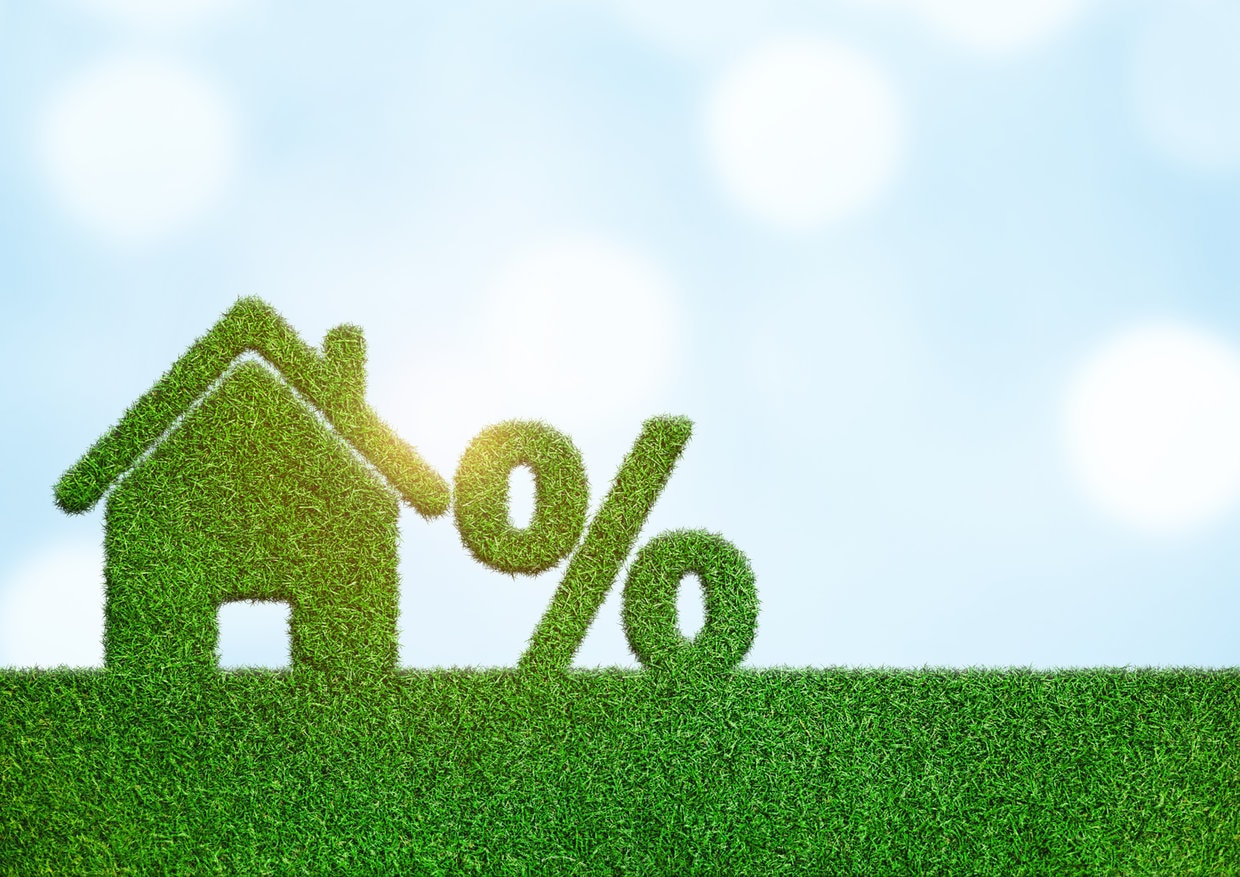Jasmine Birtles
Your money-making expert. Financial journalist, TV and radio personality.

You’ve heard of interest rates – it’s the amount you pay the bank to borrow money from them. Or, as a saver, it’s how much the bank pays you to ‘borrow’ your money. But what about negative interest rates?
Many of us won’t have heard of negative interest – and for good reason. It’s a highly uncommon scenario – but one we’re facing in the near future. We don’t know if negative interest will happen – but it’s certainly worth investigating in case it does!

Negative interest is when central banks pay other banks to borrow money! Instead of charging interest on a loan, they’ll pay extra to the borrower – which is negative interest.
Seems like a really weird strategy, right? In fact, it can (sometimes) work to stimulate struggling economies.
Central banks of each country set the interest rate. The Bank of England rate is at an all-time low – but in theory, it could be pushed into a negative rate.
Think about borrowing and savings: normally, you pay to borrow money, or get paid to save it, right?
Flip that upside down and that’s how negative interest works! Banks that borrow from a central bank with a negative rate will earn more – but if they deposit cash to be held by the bank, they’re charged a storage fee.
Central banks can use negative interest to stimulate economies. If they think their economy is facing severe deflation, because nobody is spending money, negative rates can turn this around. It costs banks to have cash holdings with the Central Bank – but borrowing more to lend to customers pays.
As banks can borrow at such a low (or rather, negative) rate, they can offer brilliant deals to consumers. It’ll be much cheaper for people to borrow for personal loans, for example – because the bank can still charge customers a (positive) interest rate but as the bank borrows with no cost, the saving gets passed across.
Banks operating in a negative interest economy won’t just suddenly start paying you to take out a loan (unfortunately).
They’re more likely to offer loans to reliable and low-risk borrowers – but may tighten on lending overall. So, if your credit score isn’t great right now, in theory it could get even harder to get a loan if interest rates turn negative.
That’s because banks could lose even more if they lend to high-risk borrowers when they’re not earning ANY interest on the loan.
Where you could normally get a loan for, say, 4%, the rate would be slashed to closer to 0.5%. So, you’d still pay to borrow money as a consumer, but the interest repayment is negligible. You could even find 0% interest deals if your credit score is near-perfect!
Banks do this because it makes sense to loan out their capital at cost or with a tiny interest rate, compared to having to pay to store their excess capital with a central bank.
Negative interest rates are great news for borrowers – but not for savers. Anyone who relies on their savings interest as part or all of their income will suffer. You could – in theory – be charged to store your cash.
You also won’t gain anything on the money you’ve got in the bank. Interest rates will eventually go up again – but in the meantime, you’ll need to consider alternative income options.
It’s not happened yet – but if negative interest rates become reality, there’s a real possibility of a run on the banks.
Savers who realise they won’t benefit from keeping their money in the bank will take it out. After all, stuffing your cash under a mattress at 0% interest is still better than paying to store your cash in a bank.
If this happens en masse, the bank no longer has the capital it needs to lend to borrowers. So, the economy could stagnate entirely.
This is all theoretical – negative interest rates are so new, no one is entirely sure if this scenario would happen. It’s not happened in Japan, which suddenly introduced negative rates a few years ago – but that’s not to say it couldn’t happen.

Existing mortgages won’t see much of a change. If you’re on a fixed-term rate, it’ll stay the same. Tracker mortgages also have a ‘lower limit’ in the fine print – so your repayments may reduce a bit, but they won’t go below the lower limit (usually at least 1% above the Bank of England base rate).
New mortgages are different. If you’re coming up to the end of your fixed-term mortgage, now’s a great time to shop around for a good deal. The same applies for first-time buyers: mortgage rates are incredibly cheap right now.
In theory, the market could see the introduction of negative interest mortgages. Denmark offered -0.5% mortgages, reducing the amount owed over time compared to the actual amount borrowed. In other words, borrowers actually EARNED 0.5% on their mortgage!
However, this happened in a ‘normal’ property market. As the current coronavirus pandemic has stagnated the UK property market, negative interest mortgages are looking unlikely. The instability of the market – and potential fall in house prices – makes banks wary about lending.
It is entirely possible to make money off sub-zero Government bonds. Yes, really! It might not seem to make any sense to buy a bond that’s not going to earn you any interest.
Yet prices will go up at some point. The idea is this: you don’t wait for your bond to mature (that’s a guaranteed way to lose money). Instead, you can sell your bond when prices rise. So, you’ll profit on the difference between your purchase and sale price.
The risk here, however, is that you may not find a buyer for your bond. You also need to time it well: if prices continue to rise, and negative interest rates are repealed before the bond matures, you could lose out on better investments. As with any kind of investment, this is a risk you need to weigh up!
Negative interest rates are very new and we still aren’t entirely sure of the long-term impact. Even more so, as they were first introduced in a non-coronavirus world. With the pandemic affecting the global economy, what impact negative interest rates have is a fair amount of guess work!
If you want to talk about negative interest rates in more detail – or have any other money-related questions – hop over to the MoneyMagpie Messageboard. Connect with other Magpies, the MoneyMagpie team, and vetted financial experts to get the answers to your burning questions!

Negative interest rate is good in theory but it will only last for a short period of time. If everyone took their money out of bank there will be nothing in the economy or banks to run. it could be a disaster.
Hopefully, if it is introduced, it’ll be a temporary measure. As you say, there’s a risk of a run on the banks – but where it’s been implemented before, other places haven’t (yet) seen this happen so fingers crossed it’ll be alright if they decide to do it here!